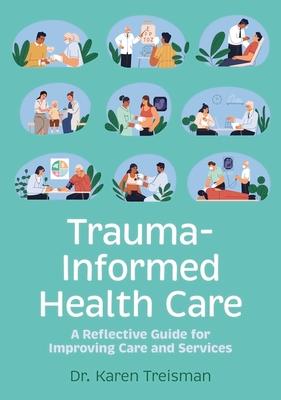This comprehensive reflective resource explores the values, principles and practical applications of trauma-informed and -infused health care.
Trauma-Informed Health Care introduces the different types of trauma - including medical and health trauma - and the impact of adversities, social inequalities and stressors. It explores their effects on health and the body, and on people's relationships with health providers. Key issues addressed include the importance of cultural humility, the effects of secondary and vicarious trauma, burnout and moral injury. It also covers the critical issue of organizational trauma: how to avoid practice which has potential to traumatize or retraumatize, and the role of cultural understanding, language, leadership, staff wellbeing and the physical environment. Drawing substantially on the experiences of people who use services and active practitioners, this book spans diverse settings -- from doctor's surgeries to hospitals and allied health services. It reveals how "every interaction can be an intervention" and provides you with practical examples, graphics and reflective exercises to support you to bring about positive change. This book is perfect for anyone working in healthcare including midwives, nurses, doctors, dentists, occupational therapists, physiotherapists, radiographers, sonographers, health care assistants, play specialists, speech and language therapists, phlebotomists, psychologists, dieticians, audiologists, podiatrists and more.
Book
Trauma-Informed Health Care: A Reflective Guide for Improving Care and Services
(Write a Review)
Paperback
$37.00
This comprehensive reflective resource explores the values, principles and practical applications of trauma-informed and -infused health care.
Trauma-Informed Health Care introduces the different types of trauma - including medical and health trauma - and the impact of adversities, social inequalities and stressors. It explores their effects on health and the body, and on people's relationships with health providers. Key issues addressed include the importance of cultural humility, the effects of secondary and vicarious trauma, burnout and moral injury. It also covers the critical issue of organizational trauma: how to avoid practice which has potential to traumatize or retraumatize, and the role of cultural understanding, language, leadership, staff wellbeing and the physical environment. Drawing substantially on the experiences of people who use services and active practitioners, this book spans diverse settings -- from doctor's surgeries to hospitals and allied health services. It reveals how "every interaction can be an intervention" and provides you with practical examples, graphics and reflective exercises to support you to bring about positive change. This book is perfect for anyone working in healthcare including midwives, nurses, doctors, dentists, occupational therapists, physiotherapists, radiographers, sonographers, health care assistants, play specialists, speech and language therapists, phlebotomists, psychologists, dieticians, audiologists, podiatrists and more.Paperback
$37.00